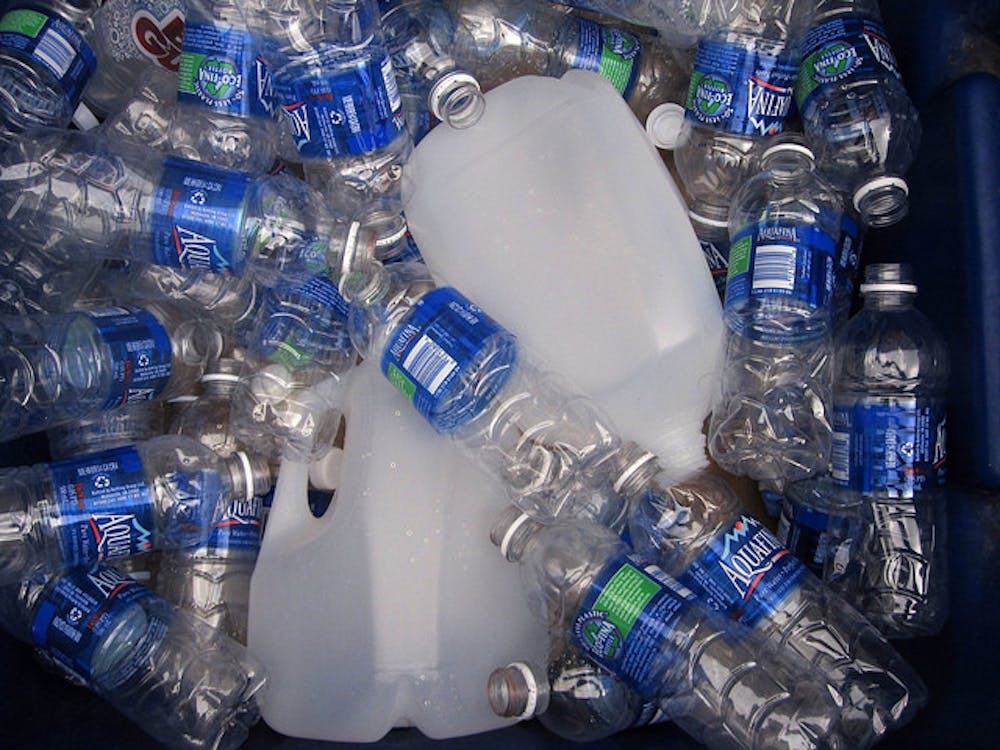An enormous amount of plastic is produced and consumed each year. Where that plastic ends up and how it impacts the environment is up to us.
The Worldwatch Institute has analyzed recent trends in plastic consumption and recycling. Their article, titled Global Plastic Production Rises, Recycling Lags, reveals that plastic production increased by 4 percent from 2012 to 2013 and is beginning to replace materials such as glass and metal, while recycling of plastic products remains insufficient.
Up to 43 percent of discarded plastic is sent to landfills where it cannot be reused or recycled. Much of the plastic waste not dumped into landfills is shipped to China from Europe and North America. According to the Worldwatch Institute, indirect evidence suggests this imported plastic is repurposed or burned for energy in facilities that lack environmental monitoring.
If plastic waste is not sent to landfills or unregulated facilities in other countries, it often ends up in the ocean. A recent study estimated that 268,940 tons of plastic particles is currently drifting through the world’s oceans. This debris has devastating effects on marine ecosystems.
The clothing label G Star Raw has created an innovative way to put plastic debris from the ocean to use. The company invented a clothing line made with yarn from recycled ocean plastic. You can check out their advertisement here:
While the effort by G Star Raw is noble, it is not going to solve all of the world’s plastic problems. We need to make a conscious effort to recycle plastic so it doesn’t end up in the oceans in the first place.
If you are a Miami University student living in a residence hall on campus, recycling is pretty easy. Any trash thrown into hallway garbage cans is sent directly to Rumpke and will sit in a landfill. If you have something to recycle make sure it goes in the proper bin. To find out which materials are recyclable and where to dispose of them in the dorms visit this page.
If you live in a house off campus, recycling is included in your garbage collection service. All you have to do is request a recycling bin from your trash service provider if you do not already have one.
For anyone living in an apartment or fraternity, a little extra effort may be required. If your landlord does not provide recycling bins you can save your recyclables and bring them to one of three locations.
- Dittmer Parking Lot (all times)
- Walmart Parking Lot (every 1st Saturday from 9:00am-1:00pm)
- Cook Field (every 3rd Saturday from 9:00am-11:00am)
On Miami’s recycling page is a reminder that a little extra effort should not stop you from recycling. That little effort can go a long way in saving our planet.
Photo License: Creative Commons

